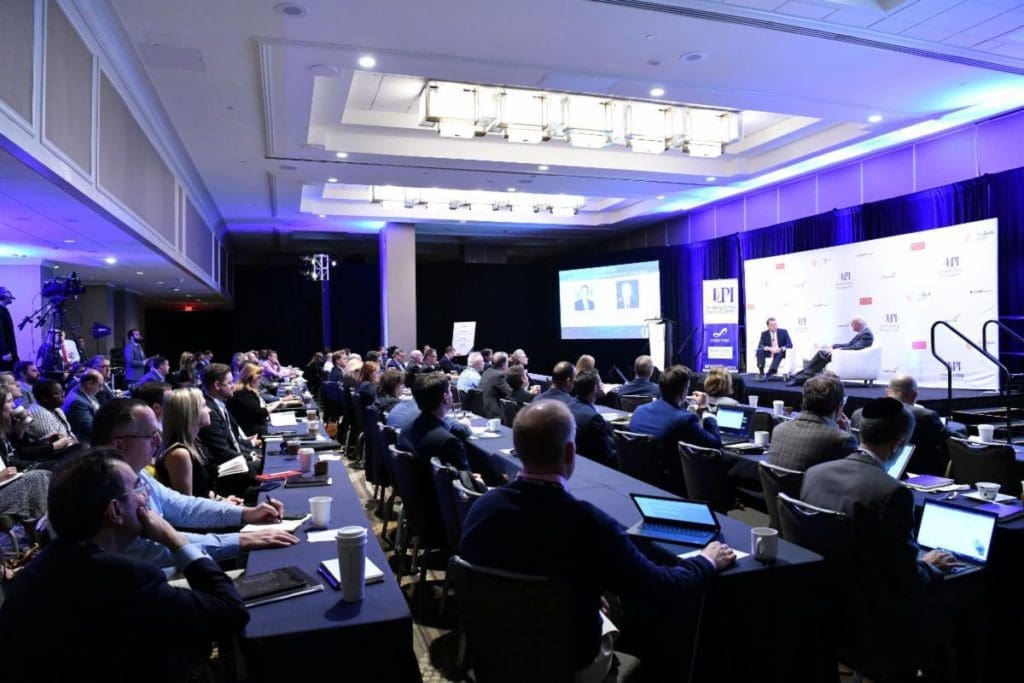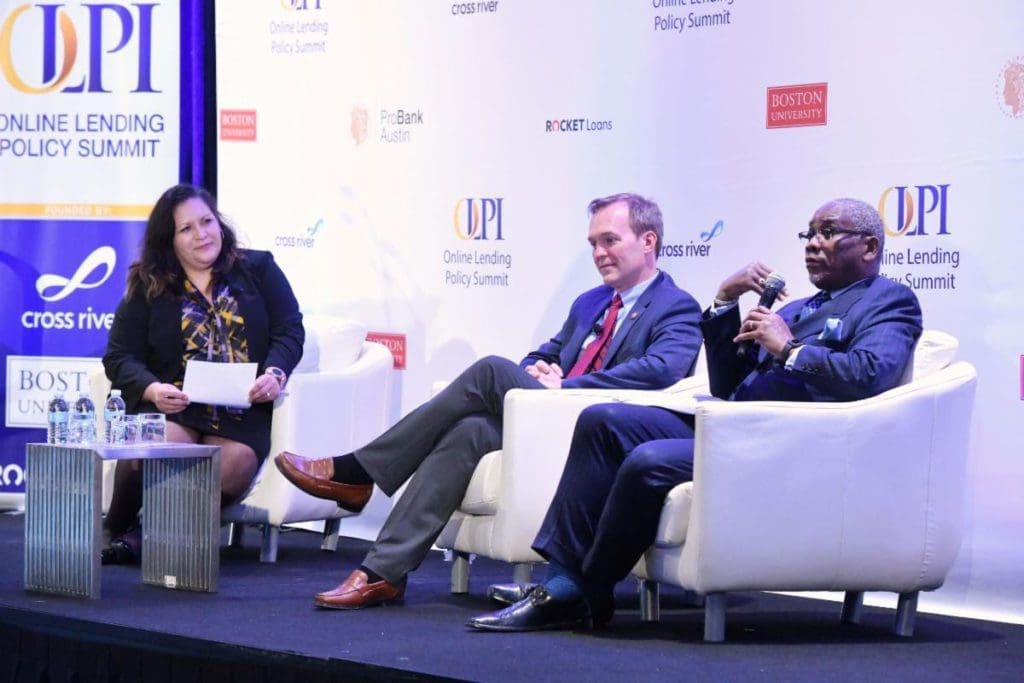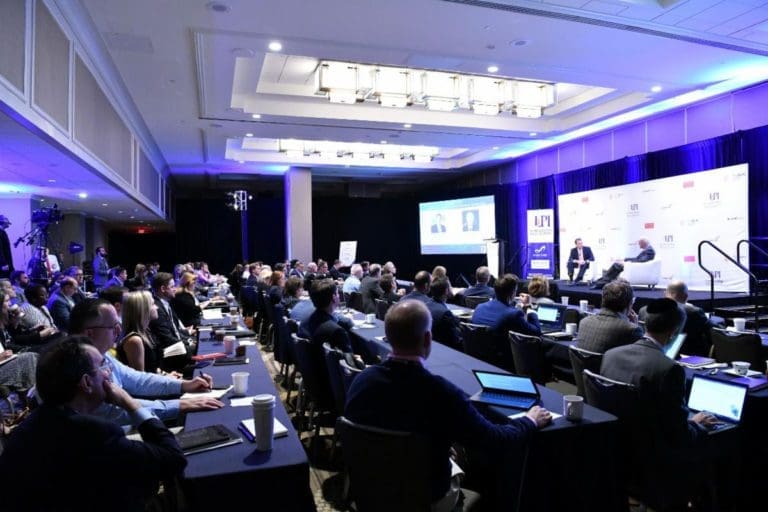
I was in Washington DC last week for the fourth annual Online Lending Policy Summit. This one day event is put on by the Online Lending Policy Institute (OLPI) where regulators, lawmakers and the industry come together to discuss regulatory frameworks and responsible innovation.
The day of the Summit also happened to coincide with the day that Mark Zuckerberg was testifying before the House Financial Services Committee. There were several Congressmen who spoke who are on that committee, so Facebook’s move into financial services, specifically their Libra initiative, became one of the themes discussed throughout the day.
They kicked off the event with Congressman Bill Foster (D-IL) who is Chairman of the House Artificial Intelligence Task Force as well as a member of the House Financial Services Committee. He also happens to be the only member in Congress with a PhD in physics. He believes that AI is going to disrupt financial services as much as other parts of the economy and many jobs will be impacted. He also stressed that it is important to be able to explain any AI decision impacting consumers in a simple manner. One interesting comment he made was about the state of the US government today, it has not been structured for a world where technology is the largest industry. When it comes to interest rate caps he believes that this should be a data driven decision. If the cap cuts too deep it could harm consumers. He will be paying close attention to what California is doing in this area.
The energetic Congressman Trey Hollingsworth (R-IN) talked about the divide between urban and rural areas and how fintech innovation, particularly online lending platforms, can help to bridge the divide. As branches for banks and credit unions close rural Americans often feel that they cannot participate in the same economy as urban Americans. His north star is to ensure that rural Americans have access to today’s financial system. He also said it is important for regulators to be harnessing the latest technology and that regulatory uncertainty has the potential to delay innovation in the long run to the detriment of the US economy. He closed by telling the audience that he is a big fan of the important work we are doing in fintech. Then he was off to question Zuckerberg.
On the panel featuring several regulatory agencies we learned more about a couple of new initiatives that were recently announced. The FDIC has setup FDiTech, a new office designed to bring fintechs and banks together. They are currently running some pilot programs that help fintech companies partner with smaller banks and provide guidance for banks that choose to deploy new technologies. The CFPB has launched the American Consumer Financial Innovation Network (ACFIN), a new network designed to enhance coordination among federal and state regulators to facilitate financial innovation. ACFIN is looking to coordinate all the state regulators and attorneys general with federal regulators as they grapple with new financial innovation. It is loosely based on the GFIN organization where global financial regulators are sharing information on regulating new technology in finance.

Congressman Gregory Meeks (D-NY) and Congressman Ben McAdams (D-UT) talked about the delicate balance needed between consumer protection and financial innovation. Congressman McAdams said that we do want to protect the consumer but that we should let innovation lead the way. Congressman Meeks said that everyone wants small community banks to survive, that is not a partisan issue. Both Congressmen agreed on the importance of diversity, that is good for all businesses and for the country.
For me, the most fascinating session of the day was the presentation by Duke University Professor Manju Puri. She presented some research that was conducted in Europe that focused on the use of digital footprints in determining credit risk. They used just 10 easily accessible variables such as email address domain, device type, operating system, the use of upper vs lower case and time of day for purchase (this was looking at data for short term loans made at the point of sale online). While no single variable in the digital footprint was particularly predictive the combination proved to be as good or better than a credit score. This can have profound implications in extending access to credit for unscored or thin file populations as the variables used in the study are widely available.
There were many other interesting sessions throughout the day but those were some of the highlights. There was some discussion on the recent decision by the federal judge against the OCC fintech charter but not as much as I expected. Last year it was the talk of the show but I think much of the industry has already moved on. This year Facebook and Libra probably got the most airtime, given the timing of the event. Kudos to the OLPI organizers for putting on another great show.


